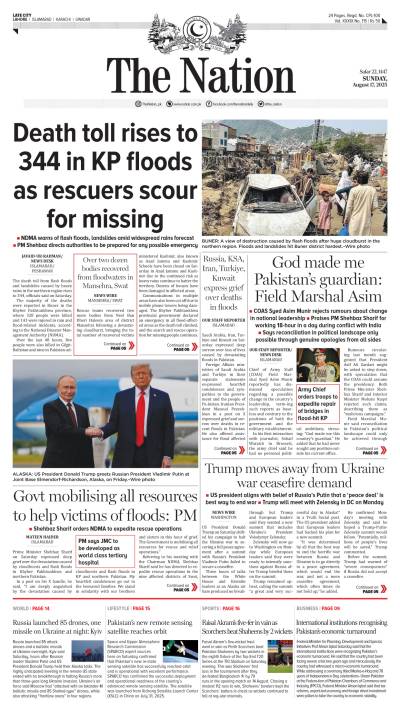From Gaza to Srinagar to Tehran, a deeper and darker conflict rages — one that transcends borders, missiles, and mandates. It is not just a political assault on Muslims but a civilizational war on Islam itself: its worldview, memory, and moral imagination.
Today, the Muslim Ummah finds itself besieged — not merely by military machines or political machinations, but by a coordinated ideological onslaught seeking to hollow out the essence of Islamic identity. Three regions — Palestine, Kashmir, and Iran — stand as active theatres of this wider clash, where Muslims are being delegitimized, dehumanized, and defanged by the intersecting forces of Zionism, Hindutva, and Western supremacism. These are not isolated episodes of oppression but strands of a larger tapestry woven with fear, prejudice, and historical amnesia.
In the wake of the events of October 7, 2023, Israel launched a scorched-earth assault on Gaza, reducing homes, hospitals, schools, and mosques to rubble. Over 36,000 Palestinians, the vast majority civilians, have been killed. But what preceded and accompanied this violence was even more chilling — a deliberate campaign of dehumanization.
Israel’s Defense Minister Yoav Gallant labeled Palestinians “human animals.” Prime Minister Benjamin Netanyahu framed the conflict as a cosmic battle “between the children of light and the children of darkness.” President Isaac Herzog went so far as to declare “an entire nation” responsible for the acts of a few. These are not rhetorical excesses — they are ideological weapons. By stripping Palestinians of humanity, genocide becomes not just possible, but permissible. The silence and complicity of Western powers — through arms sales, vetoes, and moral equivocation — amplify this license to annihilate.
Across the border in Indian-administered Kashmir, a different method of civilizational erasure is underway. Since the revocation of Article 370 in August 2019, the region has been reengineered into a garrisoned laboratory of demographic manipulation and cultural subjugation. The project is not merely about “integration,” as claimed by Indian officials, but assimilation — the forced absorption of a distinct Muslim identity into a majoritarian Hindu nation-state.
The ideological roots of this campaign lie in Hindutva — the belief that India is inherently a Hindu civilization. As RSS leader Mohan Bhagwat declared, Muslims must “understand they are descendants of Hindus.” This worldview renders Muslims perpetual outsiders — tolerated only if they submit, otherwise reduced to subjects without sovereignty. Kashmir, in this schema, becomes a battlefield not just of territory but of memory and meaning.
Iran represents another front in this siege — not because it threatens the West militarily, but because it dares to think outside the permitted paradigms. Since the 1979 Islamic Revolution, Iran has refused normalization with Israel, defied American hegemony, and supported causes that challenge the geopolitical status quo.
For this, it is caricatured as a “rogue state,” a “medieval theocracy,” and a “sponsor of terror.” These labels are not just policy tools; they are part of an epistemic war — one that seeks to invalidate Islamic modes of governance, resistance, and independence. Iran’s civilizational defiance — with all its flaws — remains a reminder that an alternative to Western modernity still exists, and that reminder is precisely what many in the West, and their regional allies, wish to erase.
What links these three flashpoints is an emerging ideological axis: Political Zionism, which seeks Jewish supremacy in historic Palestine through displacement and apartheid; Hindutva, which aspires to remake India as an exclusively Hindu civilizational space; Western Islamophobia, which casts Islam as incompatible with democracy, human rights, or modernity.
Together, these forces wage a multi front campaign — military, media driven, and psychological — to frame Muslim resistance as extremism, Muslim memory as threat, and Muslim dignity as disposable.
What we witness now is not measured neutrality but a perilous abdication. Across capitals from Rabat to Jakarta, leaders fall silent as our brethren in Gaza bleed, as Kashmiris are disenfranchised, and as Iran is choked by crippling sanctions. This dangerous quiet is more than complicity—it is an omen of an impending, irreparable loss for the Ummah. A civilization that once illuminated the world—from the libraries of Baghdad to the courts of Córdoba and the academies of Timbuktu—now risks fading into obscurity. Our silence today threatens not only political interests but the soul of a faith celebrated for its compassion, its pursuit of knowledge, and its legacy of pluralistic greatness.
Ambassador G. R. Baluch
The writer is a former ambassador and Director Global and Regional Studies Center at IOBM University Karachi.







